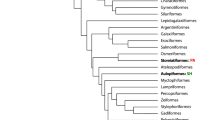Abstract.
There are at least two mechanisms by which social monogamy in the absence of biparental care may evolve: as a form of territorial cooperation, in which one or both sexes benefits by sharing a territory with a partner, and as a form of extended mate guarding, in which males guard females through entire, and perhaps multiple, reproductive cycles. I examined the effects of population variables (density, sex ratio, female synchrony) on male pairing behavior in the snapping shrimp, Alpheus angulatus, to test the hypothesis that social monogamy in this genus has evolved as a result of selection on males for long-term mate guarding of females. There was no evidence that pairing behavior changes with differences in population density; in a natural population, there was a 1:1 relationship between the number in pairs and local population density. In a laboratory experiment, males altered their pairing behavior in response to manipulated differences in sex ratio. Males in female-biased sex ratios were significantly more likely to abandon recently mated females than males in equivalent sex ratios, though there was no significant difference in the duration of pairing or the number of times males switched females. Observations of shrimp maintained for an extended period in the laboratory revealed no evidence that females molt and become sexually receptive synchronously, which would reduce the likelihood that a searching male would encounter additional receptive females. These data suggest that sex ratio may have contributed to the evolution of social monogamy in snapping shrimp, but provide no evidence that population density or female synchronous receptivity have contributed to the evolution of social monogamy.
Similar content being viewed by others
Author information
Authors and Affiliations
Additional information
Electronic Publication
Rights and permissions
About this article
Cite this article
Mathews, L.M. Tests of the mate-guarding hypothesis for social monogamy: does population density, sex ratio, or female synchrony affect behavior of male snapping shrimp (Alpheus angulatus)?. Behav Ecol Sociobiol 51, 426–432 (2002). https://doi.org/10.1007/s00265-002-0465-3
Received:
Revised:
Accepted:
Issue Date:
DOI: https://doi.org/10.1007/s00265-002-0465-3




